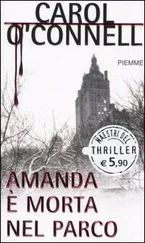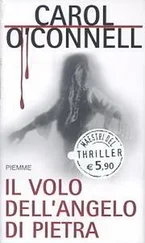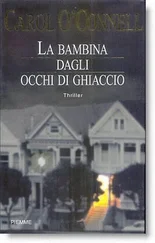Which monster would get to her first?
***
The elderly psychologist sat in the company of FBI agents. The moles hovered by the door, waiting to see if Nahlman would give them up for failing to keep a close eye on the old man. She had no plans to rat them out; she might find some later use for this leverage if she needed more agents in her own camp.
Special Agent Dale Berman was telling the elderly doctor that he had a lot of explaining to do. The man’s voice was more in the range of chastising a child than interrogating a suspect. “What were you thinking, old man-carrying that thing around?”
“You mean the pouch,” said Dr. Magritte.
“What pouch?” Berman raised his eyes to stare at Agent Nahlman, who had personally escorted the psychologist and ex-priest to this motel room. The doctor had been her prime exhibit while carefully bringing home the point that the background checks on the caravan were not all that they should be.
Berman prompted her now. “What’s he mean, Nahlman? What pouch?”
“I think he means his knapsack,” she said. “That’s where he kept the gun.”
The blue pouch with the tiny bones was locked in the glove compartment of her car. She was the only one to see the astonished look in Paul Magritte’s eyes.
Paul Magritte rode back toward the caravan in Agent Nahlman’s automobile. She played the radio, and he replayed his memories of that tumble-down house back in Illinois. For him, it was no longer springtime. Winter was coming. It was not night anymore, but a long-ago day. It was four weeks following his first encounter with the Egrams.
This was no feat of memory anymore. He was reliving it.
Once more he wore a cassock, and again he traveled down a rural segment of Route 66, returning his young charge to the Egram home. The ten-year-old sat beside him as the car rolled down the road of stark winter trees and overcast sky. The child’s face was still swollen from surgery.
On this Saturday following Thanksgiving, here and there along the way, men on ladders were stringing up long wires of colored light bulbs to line their rooftops for the next holiday. The priest was in a good humor that afternoon, for he was about to deliver a fine Christmas present indeed. Paul Magritte had lost his smile as he pulled over to the side of the road.
The Egram house had a hollowed-out look. Every curtain was gone from the windows, and blank walls could be seen beyond the glass. The child beside him could not fail to understand what this meant. It was the priest who was in denial.
How could they be gone?
“Stay here. I won’t be long.” He saw himself leaving the car and walking down the road to the nearest house, and then the next one and the next. No one had seen the couple depart, nor could anyone say where they had gone. The truck driver and his wife had moved by night-and so stealthy. They had not caused one dog to bark. It was only the matter of the dogs that these people found remarkable, not that the Egrams should leave without a word to neighbors of long acquaintance. That they could accept.
Had the police been wrong to clear the parents of blame for the little girl who was lost and likely dead? Flight spoke to guilt, and this might explain why the father had been quick to sign the consent forms: traveling with a deformed child would have made the fugitives stand out on any road.
And now little Adrian Egram was standing in the road and staring at the empty house. The priest was reaching out to console the youngster when the swollen face lifted to smile at him, and a small voice said, “Forgive me, father, for I have-” And here the ten-year-old paused to compensate for the lisp of a misshapen mouth, taking great care to pronounce the word, “-sinned.”
These were ritual words, but this child had not been raised as a Catholic. The mother alone had come back to the faith. Father Paul Magritte looked up to the second-floor window, and there in that upstairs bedroom he envisioned Sarah Egram inadvertently teaching her child these words, this formal prelude to confession-while she packed a small bag for the youngster’s t rip to a Chicago hospital. In his mind, Paul Magritte could clearly see the woman-even hear her now-repeating the words over and over, though the priest had been waiting downstairs in the front room-unable to hear her confession.
Until that day on the road, when he had found the house empty-the child abandoned.
Young Adrian fed the words back to him like a parrot delivering a long-delayed message, saying once more, “Forgive me, Father, for-”
“No.” The priest had gently raised one finger to his own lips, a gesture to silence the child. “No more of that.”
So many years had passed. The house was gone now, and even the patch of road they had stood upon that day had fallen into ruin before the rest of Mrs. Egram’s message was delivered.
Agent Nahlman checked the rearview mirror. Paul Magritte’s watchers were still following them as she drove toward the campground. The old man beside her was lost in his own quiet thoughts.
Christine Nahlman’s mind was on the bungled interview. Dale Berman had done his ineffectual little song and dance. Then he had dismissed the idea of any connection that went far beyond a suspected relationship of Internet psychologist and killer. Berman would never admit that his flawed background checks could impede a case. Incredibly, he had even returned the gun to Paul Magritte and demanded that Nahlman apologize to the old man. And she had seen all of this coming her way.
However, now, in the privacy of this car, it was her interview. She switched off the car radio as a subtle invitation for Magritte to break his long silence.
The doctor’s voice was tentative, testing the air. “Why didn’t you tell them about the pouch-the little bones?”
She planned to let him wonder about that for a while. “I have family in Chicago,” she said, though all of the people that she had loved best were dead and lying in California ground. “Chicago. That’s where you were based when you were a priest-a priest psychologist.” That part, according to Detective Mallory, was true. “My mother has the best therapist money can buy. It’s a small community, isn’t it? Shrinks, I mean. Lots of backbiting and gossip. I didn’t know it would be so easy to find out what a third-rate doctor you were.” She had run her bluff, and now she caught him in an unconscious nod, her cue that he had not been a financial success in private practice. “So I had to wonder why you left the priesthood. At least the Catholic Church gave you a steady income.”
“At one time, I was a bad psychologist… and a worse priest. How could I stay? Oddly enough, since leaving the Church, I’ve become a better man.”
“I don’t think I can buy that,” said Nahlman. “You knowingly consorted with a child killer. Did he scare you? Are you scared now? You should be. You’re the only one who can identify him.” She turned to look at Magritte in sidelong glances, checking her progress, waiting for cracks in composure. “You’ve known this freak for a long time.” For punctuation, she slapped the dashboard, hitting the surface hard with the flat of her hand to make the frail old man jump in his skin.
Well, that was a foolish waste of time. Detective Mallory’s unique interview style would have inured this man to any more sudden shocks-or loud noises.
Nahlman pressed on. “So your private practice wasn’t making any money. Then you started the Internet therapy groups. Anonymity and no expensive malpractice insurance. Not a bad living, either. Now you drive a luxury car, and you don’t b u y your clothes off the rack, do you? Pa rents of missing children make the best victims. Shrinks and psychics can really cash in on-”
Читать дальше












